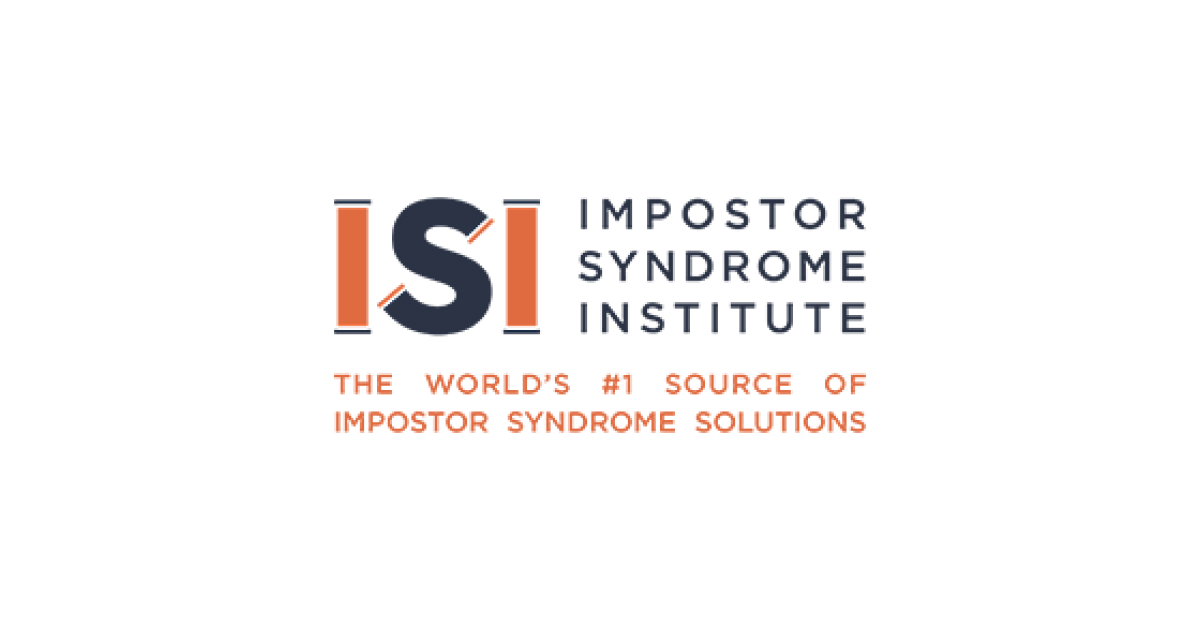Impostor Syndrome Institute
United States, South Hadley
At Impostor Syndrome Institute we provide research-based tools, vetted solutions, and practical resources to coaches, speakers, and organizations to neutralize impostor syndrome.

Main Services:
Keynotes, Presentations, Workshops, Coach Training, Speaker Licensing, Coaching, Consulting, DEI, Validated Assessment

Our strong commitment to diversity, inclusion, and equity in all forms is woven throughout all of our solutions.
Because the fact is, millions of men and women around the world — executives and entry-level professionals, first year college students and PhDs, artists and engineers — secretly worry they’re not as smart or talented or qualified as other people “think” they are.
And left unchecked, impostor syndrome can lead to costly consequences not only for individuals but for their organizations as well. Which is why if you lead, manage, mentor, train, or coach people you need to understand impostor syndrome.
Our co-founder Dr. Valerie Young is regarded as the world’s foremost thought leader based on her 40 years of work on the topic and her award-winning book, The Secret Thoughts of Successful Women And Men: Why Capable People Suffer from Impostor Syndrome and How to Thrive In Spite of It.
Dr. Young is also the originator of “the 5 types of impostor syndrome” which describe the different ways people who feel like impostors hold themselves to unrealistic, unsustainable standards of competence. In her research with hundreds of thousands of people from a wide range of occupations and at all phases of their careers, five different types emerged — each with its own unique focus: The Perfectionist, The Expert, The Soloist, The Natural Genius and The Superhuman.
Rethinking Impostor Syndrome™ is the name of our proven educational solution which has been delivered to over 500,000 people around the world. Its vetted content is the basis for all of our keynotes, workshops, presentations, ebooks, webinars, facilitator training for organizations, speaker licensing and coach training.
Rethinking Impostor Syndrome™ delivers a distinct point of view:
+ An estimated 70 percent of achievers — men and women — have experienced impostor syndrome. Discovering a name for these common feelings is the first step.
+ Impostor syndrome isn’t just an “interesting self-help topic” — it’s a bottom line issue. Impostor-related thoughts and feelings lead to unproductive behaviors which are costly to individuals and their organization.
+ Impostor syndrome has been over-psychologized. In addition to family messages, there are situational, occupational, societal, and organizational sources of impostor feelings. Seeing our individual experience in a broader context helps to normalize and mitigate it.
+ A sense of belonging fosters confidence. Societal stereotypes about competence based on gender, race, age, language, class, and/or dis/ability make some groups especially susceptible to impostor syndrome.
+ Feelings are the last to change. The only way to stop feeling like an impostor is to stop thinking like an impostor. Fortunately this new thinking can be learned — and supported on an organizational level.
We advocate for people to go from “IMPOSTOR” TO HUMBLE REALIST™ thinking because people who don’t feel like impostors are no more intelligent, capable, or competent than those of us who do. They just think different thoughts.
This is not about a “pep talk.” Simply telling yourself or others, “You’ve got this.” “You can do this!” Or “You deserve to be here!” (all of which are true) won’t move the needle in any lasting way.
That’s because people who are genuinely humble but have never had impostor feelings (we call them Humble Realists™), think differently about three things. Humble Realists™:
• hold themselves to realistic standards of competence
• have a healthy response to failure, mistakes, and constructive “criticism”
• expect to experience self-doubt and fear – but keep going regardless
Audiences who attend this surprisingly upbeat program discover what impostor syndrome is, where it comes from (hint: it’s not all in your head), and how it works.
As importantly, you walk away with practical, immediately usable tools that can be used to help yourself — and the people you lead, manage, mentor, teach, or parent — to finally feel as bright and capable as they really are.



